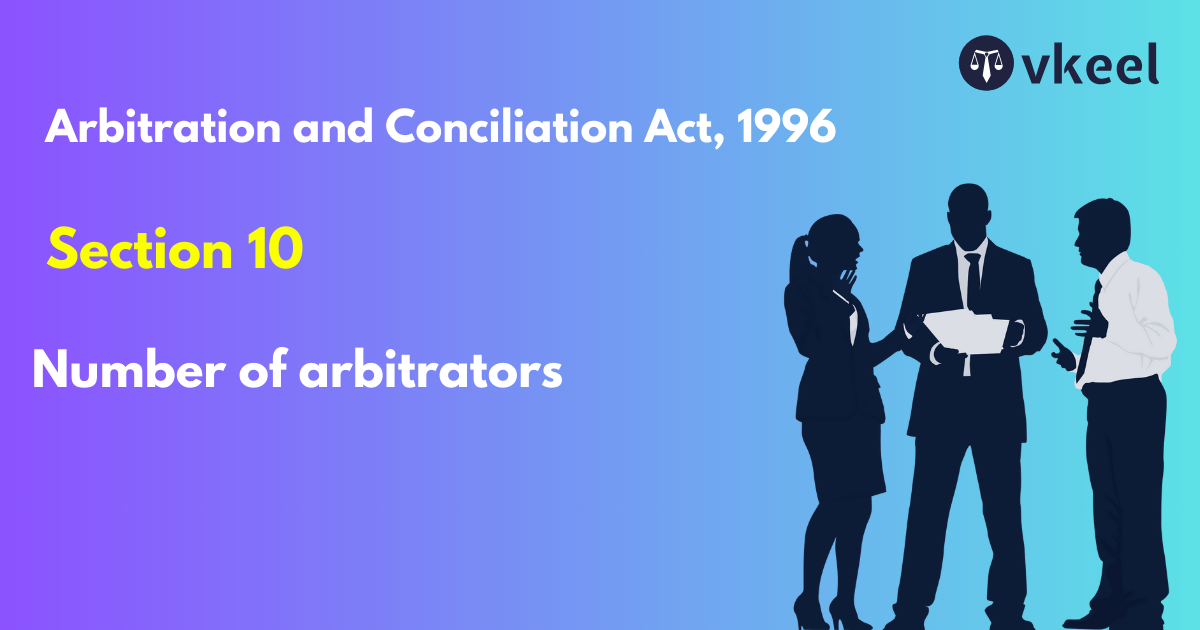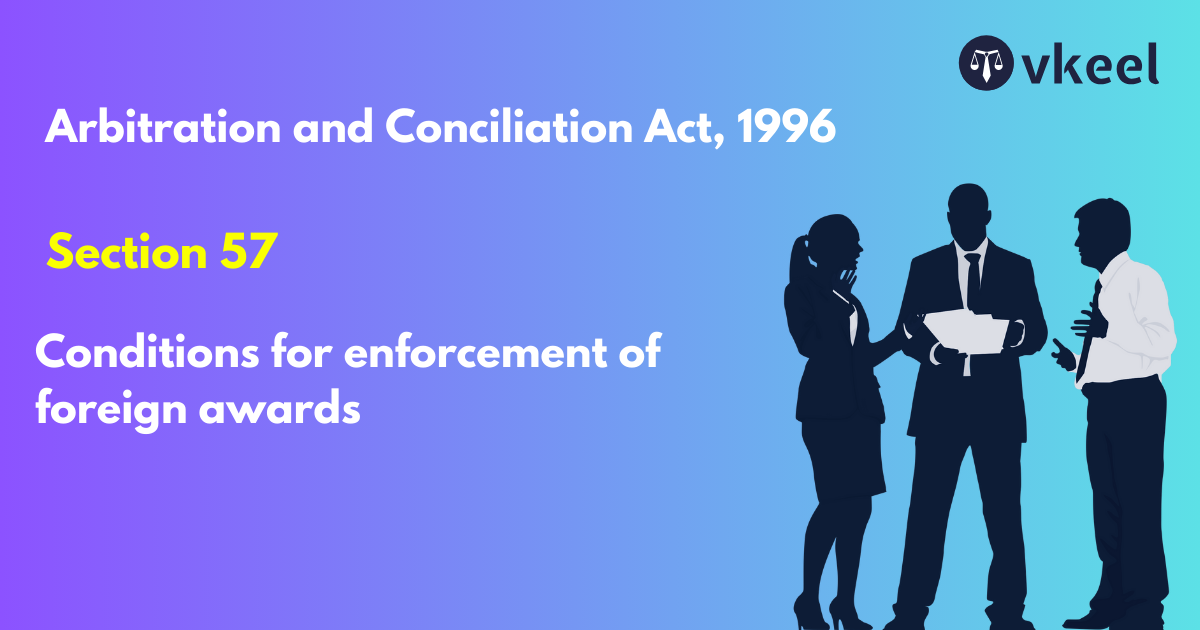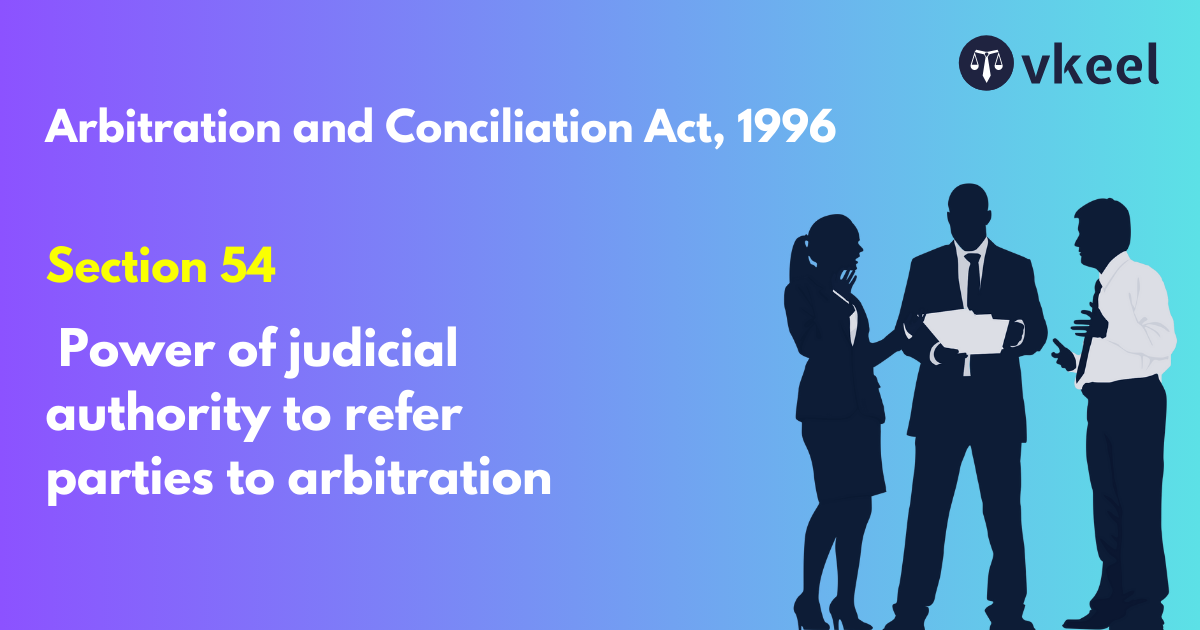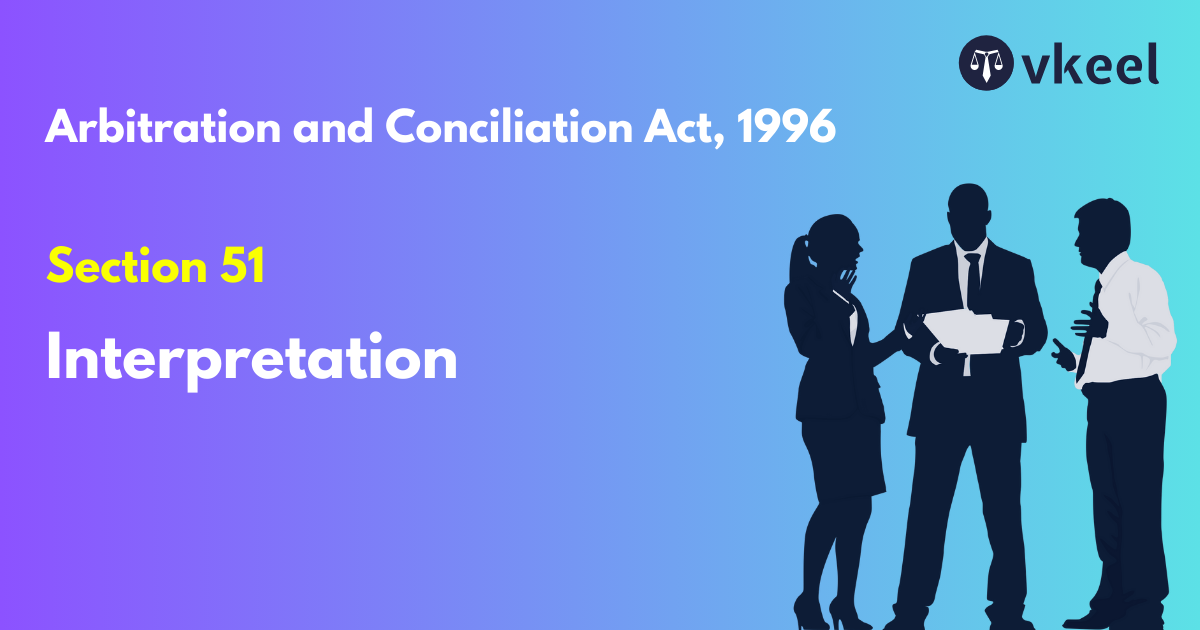Section 10: Arbitration and Conciliation Act, 1996
By Nivedita Dhiman
Table of Contents
Introduction
The Section 10 of the Arbitration and Conciliation Act, 1996 explicates regarding the number of arbitrators in a proceeding. In a case where number of arbitrators is not determined, the arbitral tribunal shall consist of sole arbitrator.
The party’s autonomy in the arbitration agreement is given due importance in construing the intention of the requisite parties.
The role of an arbitrator is to adjudicate upon the disputes refer to him, which can be either as a sole arbitrator or conjointly with the other members of the arbitral tribunal, which should be based on a perusal of the evidence on record and the pleadings of the parties.
Section 10 of Arbitration and Conciliation Act, 1996
Number of arbitrators.
(1) The parties are free to determine the number of arbitrators, provided that such number shall not be an even number.
(2) Failing the determination referred to in sub-section (1), the arbitral tribunal shall consist of a sole arbitrator.
Landmark Judgements
National Small Industries Corp Ltd. v National Metal Craft, 1981
If the agreement merely provides that the dispute shall be referred to arbitration, the reference shall be made to a single arbitrator. If the agreement does not provide for the number of arbitrators and the mode of their appointment, it will be assumed to be one for reference to a sole arbitrator and the mode of appointment taken necessarily to be consent of parties, and, if the parties do not concur in the appointment, the court will make the appointment.
Teanco Pvt Ltd. v TMS Mani, 1967
Where the stipulation in the arbitration agreement is that “Matters should be referred to arbitrators, elected by the parties, the use of the expression “arbitrators” clearly expresses the intention that reference will not be to a sole arbitrator and thus, expresses a different intention.
Indian Hosiery Works v Bharat Woolen Mills Ltd. 1953 When the arbitration clause inter alia provided that, “All disputes whatsoever arising…. shall be referred for arbitration at Calcutta. The decision of its Tribunal of Arbitration shall be final and binding on both the parties…”, the clause was challenged as being vague and uncertain. It was held that the clause was neither vague nor uncertain, although no arbitrator had been named in the agreement and the mode of appointment had not been specified.
ITC Finance Ltd. v Grapco Mining and Co Ltd. 1998
The argument that since the name of the arbitrator has not been mentioned in the arbitration agreement, it should be deemed in law to be non-existent cannot be accepted because the naming of the arbitrator in the arbitration agreement is not a mandatory requirement and non-mentioning of arbitrator’s name would not make it non-existent.
Dharma Prathishthanam v Madhock Const Pvt Ltd. 2005
If the arbitrator is not named and the authority who would appoint the arbitrator is also not specified, the appointment and reference shall be to a sole arbitrator unless a different intention is expressly spelt out. Such an appointment and reference has to be a consensual affair. The consent may be given either at the time of choosing the arbitrator and making reference or else at the time of entering into the contract between the parties in anticipation of an occasion for settlement of disputes arising in future or is sanctioned by statutory rules, regulations or bye-laws.
Gayatri Projects Ltd. v State of Orissa, 2004
An interpretation of the expression “an arbitrator” cannot be detached from the context in which it occurs and hence the same cannot be interpreted in a vacuum, and has to be made in the light of other provisions of the agreement. Where one clause of the agreement speaks of the expression “an arbitrator” and the other clause stipulates that arbitration shall be conducted in accordance with the arbitration procedure of a named Institution, which provided for a panel of three arbitrators, it was held that adjudication of disputes shall be made by an arbitral tribunal of three members.
Conclusion
To summarize, the validity of an arbitration clause does not in its very essence, depend upon the number of arbitrators specified therein.
The number of arbitrators is dealt with separately in this section of Arbitration and Conciliation Act 1996, which is a part of the machinery provision for the working of the arbitration agreement in the modern law agreements in the country.
Disclaimer:
The information provided in the article is for general informational purposes only, and is not intended to constitute legal advice or to be relied upon as a substitute for legal advice. Furthermore, any information contained in the article is not guaranteed to be current, complete or accurate. If you require legal advice or representation, you should contact an attorney or law firm directly. We are not responsible for any damages resulting from any reliance on the content of this website.












